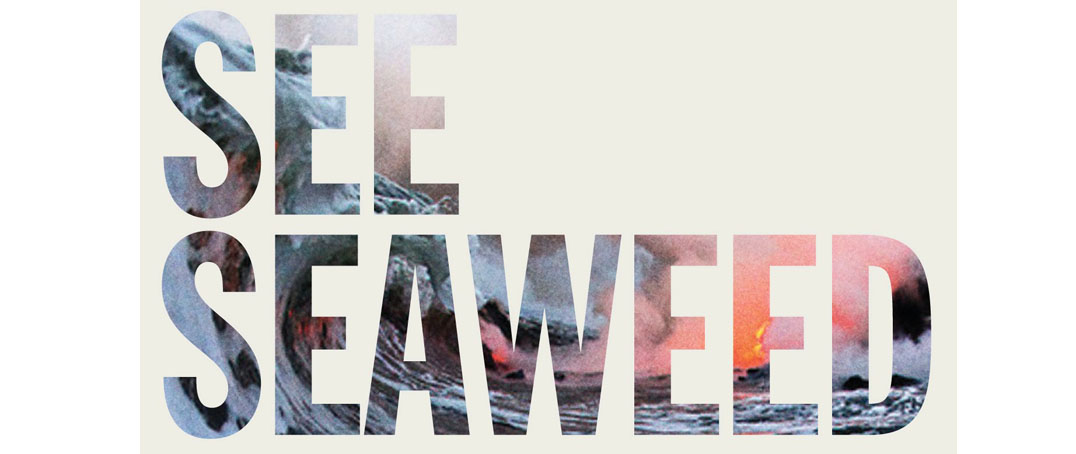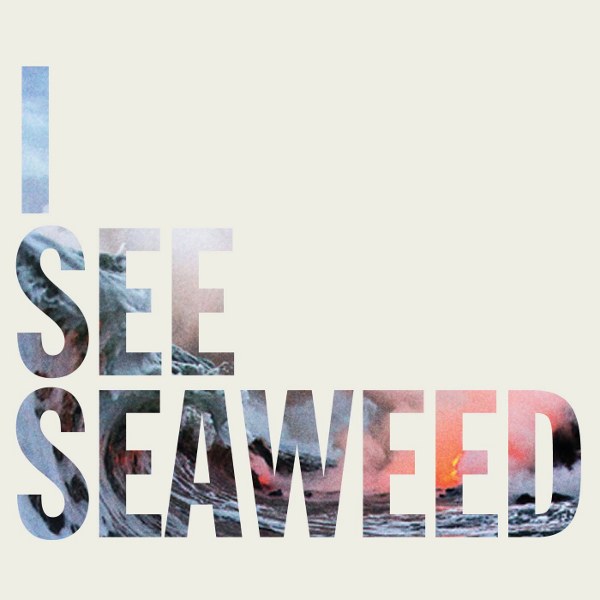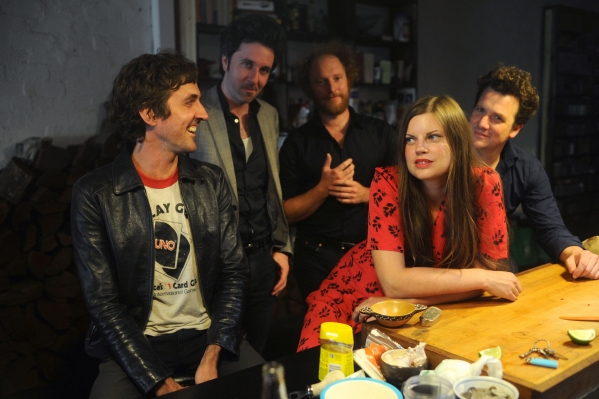Some thoughts about I See Seaweed

“Records take time. Songwriting takes time.” – Gareth Liddiard, 2005.
Fast-forward to 2013, in the wake of The Drones’ sixth album I See Seaweed.
The facts of the matter are:
The Drones are an audacious band.
Evidence:
- Centring the group’s music on the unashamed warbles of an idiosyncratic Australian voice? Check.
- Beginning your album with an eight-minute dirge about the impending horrors of overpopulation, climate change, and rising sea levels? Check.
- Naked pessimism and misanthropy as the common thread of the band’s music? Check.
- A surprise choir and orchestra during the misanthropic climax of “Laika”? Check.
Gareth Liddiard is the most outstanding lyricist of our time.
Evidence:
- “Laika”: inspired by the first dog launched into orbit. Gareth ponders human-nature, and the cruelty that could drive us to shoot another creature into space. “Half a pound of sugar on an old blackboard” alludes to the image of a cosmos of stars against the blackness of space.
- “Nine Eyes”: the tale of Gareth Liddiard using Google Street View to “take a strangely disembodied walk“ of the streets of his childhood home in Western Australia. “What kind of asshole drives this lime green Commodore?” is Gareth’s spiteful question to the new owner who is now “calling my pad his home”.
- “Why Write A Letter That You’ll Never Send”: a broad-sweep of all the lessons humanity has failed to learn, and the way we seem to take these repeated failures as granted. “Who’s surprised they went and chose a Nazi for a pope?” “Who cares what movie stars in Africa, or the guy from U2 says?”
The Drones are artists, in it for the long-haul.
Evidence:
- I See Seaweed comes eight years after The Drones’ breakthrough album Wait Long by the River and the Bodies of Your Enemies Will Float By, which won the Australian Music Prize in 2005. Hell, it comes five years after previous album Havilah and three years after Gareth Liddiard’s debut solo album.
- This is not the pattern of a careerist rock band, pumping out singles, albums and video clips every year. It is the hallmark of artists, slowly developing their career as the years slowly unfold.
- Despite unanimous praise from music critics, the band still declared that they were living on incomes little more than the dole in the late 2000s. The band seems resigned to the limited fanbase that they can ever hope to attract in Australia: a country with 23 million people, yet only 5 cities topping 1 million residents. (The Drones famously won’t play in towns without skyscrapers).
- The Drones sail against the prevailing winds of commercial wisdom, continuing a path charted only by their artistic instincts.
I See Seaweed is The Drones’ most accomplished album: a remarkable feat for a band thirteen years into a career. I can only imagine the treasures that await, as Liddiard and bandmates continue their slow-burn trajectory toward artistic truth.
References from above:
“The Drones: ‘It’s Just About Spotting Garbage’” by Doug Wallen – Mess+Noise, 2013.
“The Drones: ‘I See Seaweed’ review” by Kate Hennessy – Mess+Noise, 2013.
“Track By Track: The Drones ‘I See Seaweed’ review” by Samantha Clode – FasterLouder, 2013.
“Report: The Drones, Brisbane 2013” by Andrew McMillen – TheVine, 2013.
“The World According to Gaz” by Andrew Ramadge – Mess+Noise, 2010.
“Gareth Liddiard of The Drones interview” by Andrew McMillen – Mess+Noise, 2010.
“Emigrating Talent” by Andrew Ramadge – Mess+Noise, 2005.










Comments